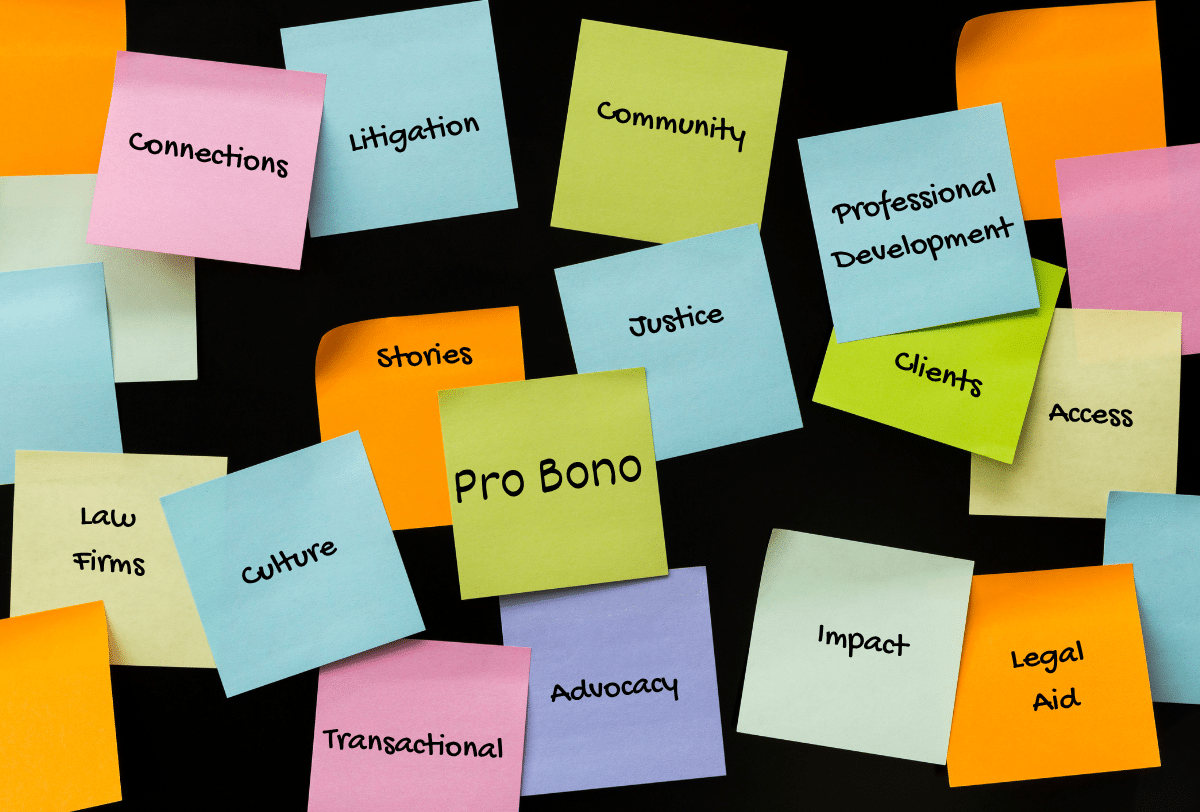At this year’s Equal Justice Conference, I attended a thought provoking session on strengthening the law student pro bono pipeline. This panel, featuring leaders from across the legal ecosystem—Linda Seely (Butler Snow), Marissa LaVette (American Bar Association), Allison Constance (Legal Aid of North Carolina), and Deborah Schlosberg (University of California, Berkeley)—offered rich insights into both the opportunities and challenges of engaging law students in pro bono work.
The session opened with attendees candidly sharing familiar hurdles: the need for robust supervision, training, recruitment challenges, and the issue of student follow-through. Rather than viewing these as roadblocks, however, the panel reframed them as design challenges—and responded with a range of thoughtful, creative solutions.
Law Schools as Incubators and Connectors
A key theme of the discussion was the important role law schools play in nurturing not just future legal professionals, but also future pro bono champions and donors. As one panelist put it, pro bono engagement isn’t just about skill-building: it’s an early opportunity to cultivate values and long-term commitments to justice.
Deborah Schlosberg described how UC Berkeley’s program empowers 2Ls and 3Ls to manage pro bono projects, reducing the administrative load on supervising attorneys while also developing leadership skills in students.Their model includes a curated pro bono opportunities list and functions almost like a staffing agency for public interest work.
Practical Strategies That Work
Panelists shared actionable strategies that other organizations can adopt or adapt:
- Provide Clear Deliverables: Students often hesitate to get involved because they’re unsure of expectations. UC Berkeley’s team found that offering examples of finished work helps students take on casework with more confidence.
- Simplify Supervision: Allison Constance recommended a simple check-in email for supervising attorneys—just enough structure to ensure oversight without becoming a burden.
- Incentivize with Impact: Linda Seely noted that attorneys at her firm are more inclined to volunteer when they know students will be joining them. It’s a win-win: attorneys feel supported, and students gain hands-on experience.
- Normalize Learning Curves: One lighthearted moment reminded us that everyone is learning. Students often feel impostor syndrome, but watching an attorney navigate an unfamiliar area of law can be surprisingly comforting.
- Ethics First: UC Berkeley offers early training in legal ethics for 1Ls, helping students understand the responsibilities tied to pro bono work before they even begin.
Examples of discrete student-friendly projects, such as drafting wills, powers of attorney, or amending birth certificates, also sparked ideas for immediate implementation.
Where Paladin Comes In
At Paladin, we’re deeply committed to supporting this ecosystem. Our platform can help law schools and legal services organizations streamline the matching of students to opportunities, track engagement, and reduce the administrative friction that can hinder meaningful engagement. For law firms, highlighting student involvement in pro bono clinics on our platform can make opportunities more attractive to attorneys, and more impactful for clients.
This session made one thing clear: every law school, legal aid organization, and law firm does this work differently, and that’s a strength. With the right infrastructure, collaboration, and tools, we can build more resilient pipelines that serve students, support supervisors, and expand access to justice.



